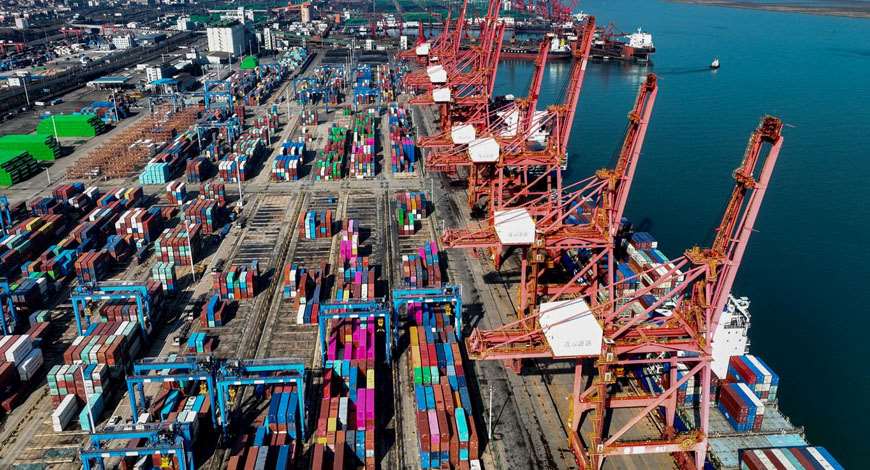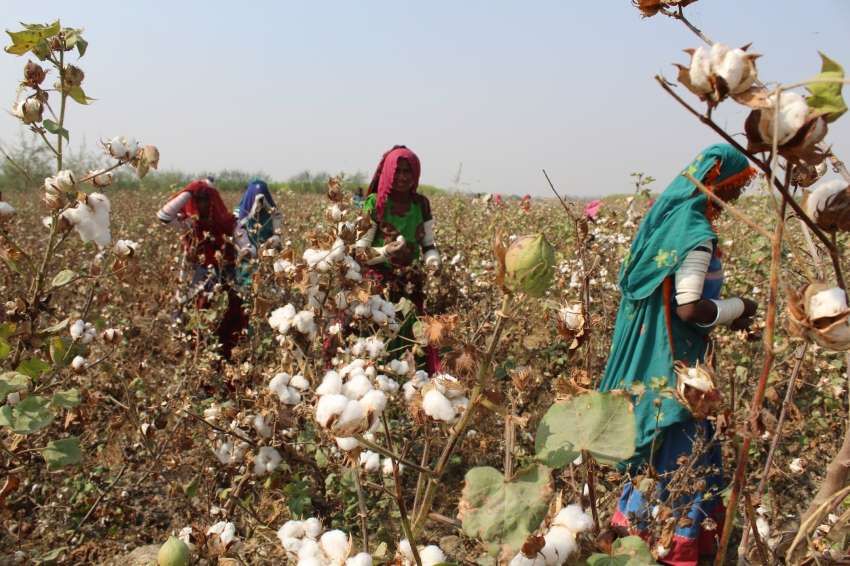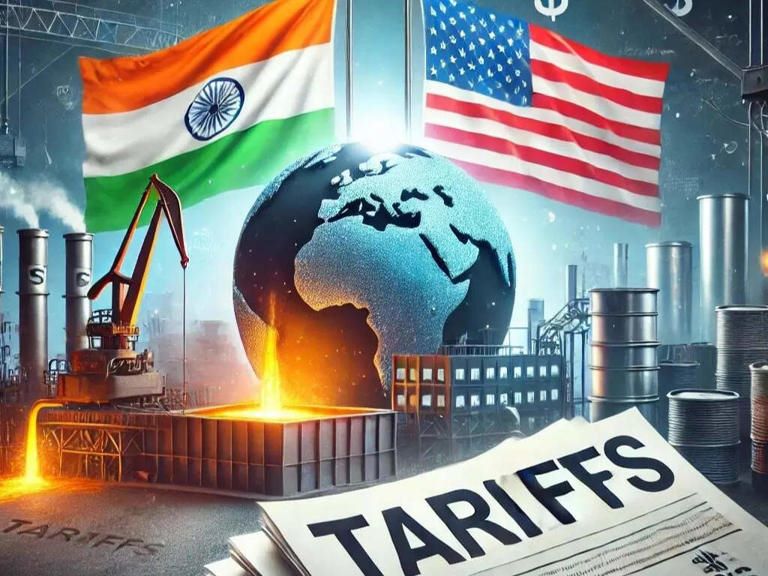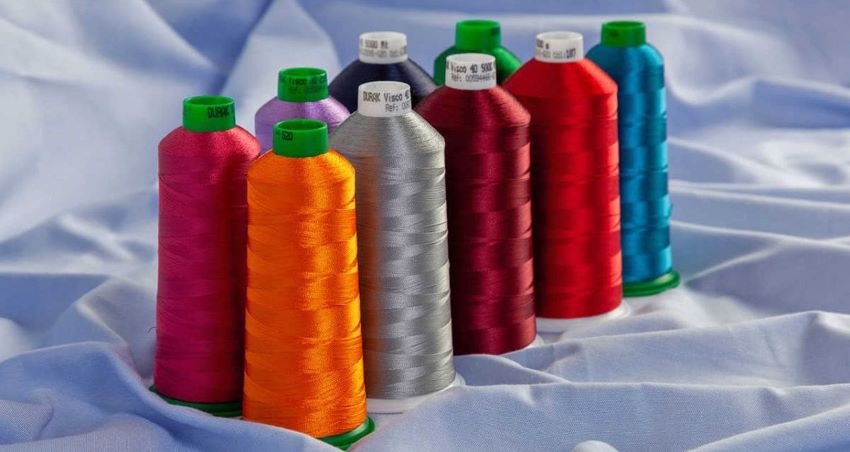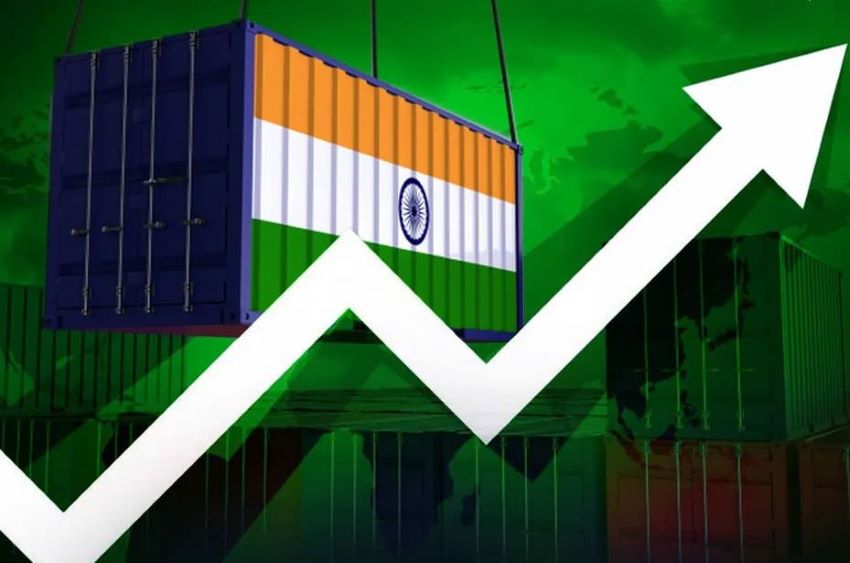FW
Expanding its global footprint, major Chinese textile manufacturer since 1986, Panther Denim is setting up new factory in Cambodia.
Originally focused on the domestic market, Panther Denim established Tat Fung Textile in 2010 to handle its booming international business. Today, the company produces massive quantities of denim and dyed fabrics, employing over 2,000 people.
To further its growth and sustainability goals, Panther Denim is building a state-of-the-art facility near Phnom Penh, Cambodia, set to open in late 2025. This factory will prioritize renewable energy, recycling, and a closed-loop waste system, making it one of the company’s most eco-friendly operations.
Emphasizing on the company’s commitment to a sustainable and innovative supply chain, Tim Huesemann, Sales Director, says, Panther Denim aims to improve innovation speed and customer satisfaction by diversifying its investments across multiple countries, gaining a competitive edge.
While China remains a key market for Panther Denim, the company also benefits from the stable workforce and favorable trade agreements offered by Cambodia. Unlike other Southeast Asian nations facing labor shortages, Cambodia presents a promising environment for denim production. Panther Denim's Cambodian operations will be independent of its Chinese facilities, ensuring existing production remains unaffected.
Cambodia's trade agreements, including the Cambodia-China Free Trade Agreement, the Regional Comprehensive Economic Partnership, and the Cambodia-Korea Free Trade Agreement, will significantly boost Panther Denim's export capabilities. These agreements will reduce or eliminate tariffs, enhancing access to Asian markets and fostering stronger trade and investment.
By expanding into Cambodia, Panther Denim aims to capitalize on a growing market while upholding its commitment to sustainability and innovation. This strategic move positions the company for continued growth and reinforces its role as a leading global denim manufacturer.
Kraig Biocraft Laboratories has officially established production operations in Lam Dong Province, Vietnam, marking a major milestone in its decade-long strategic expansion.
The company secured an Investment Registration Certificate (IRC) earlier this year, a key regulatory step that paved the way for large-scale spider silk manufacturing in Vietnam’s premier silk-producing region. With confirmation from Lam Dong’s Department of Finance, Kraig Labs is now accelerating production growth and strengthening its supply chain.
Lam Dong’s established silk industry provides an ideal ecosystem for Kraig Labs proprietary spider silk production. By setting up operations in the region, the company is positioned to scale up manufacturing and execute its ambitious expansion plans for 2025 and beyond.
“This is a transformative moment for Kraig Biocraft Laboratories,” said Founder and CEO Kim Thompson. “Establishing operations in Lam Dong has been a priority for more than ten years. Now, with our footprint firmly in place, we are making significant investments to drive production to unprecedented levels.”
With its cutting-edge biotechnology, Kraig Labs aims to revolutionize the performance textiles industry while contributing to Vietnam’s silk sector. The company remains committed to advancing sustainable silk production and expanding its global market reach.
The global handloom products market is projected to grow at a 9.3 per cent CAGR from 2023-2030 to reach $15.6 billion by 2030.
As per a report by Persistence Market Research, this growth will be fueled by the rising demand for sustainable and ethical fashion, along with the government’s increased support to artisan communities.
Known for their authentic designs and eco-friendly production, handloom textiles are gaining popularity as consumers reject the negative impacts of fast fashion. Consumers are increasingly choosing handcrafted items to minimize their environmental footprint and support local economies.
Governments worldwide are supporting the handloom sector with financial aid, tax breaks, and skill development programs, helping artisans modernize and compete globally. However, technological limitations pose a challenge. Traditional weaving, while authentic, is less efficient than machine production.
Demand in the sector is being driven by ethical consumerism and government initiatives. Key players like Fabindia and KVIC are leveraging brand reputation and digital marketing to expand their reach.
Innovations in loom technology are increasing efficiency, while companies are adopting eco-friendly practices like natural dyes and reduced water consumption. E-commerce is providing a direct-to-consumer model, enhancing visibility and sales.
However, market access remains a hurdle as artisans continue to struggle with limited distribution and competition from mass-produced goods. To overcome these barriers, the sector needs to step up investments in digital marketing and direct-to-consumer sales.
The sector’s use of natural fibers and eco-friendly dyes aligns with consumer demand for ethical products. The market’s short-term growth is likely to be driven by the growing popularity of sustainable products and government support. However, to succeed in the long term, the sector needs to balance tradition with innovation. It also needs to invest in digital tools, supply chain improvements, and international partnerships.
A French company, Carbios has become the world’s first to unveil a plain white T-shirt made entirely from recycled polyester fabric offcuts. This breakthrough ‘fiber-to-fiber’ system uses enzymes to break down and regenerate polyester fibers, offering a sustainable alternative to traditional oil-based polyester production.
This innovation addresses the massive problem of polyester waste, which is currently mostly incinerated, says Emmanuel Ladent, CEO, Carbios. This development could revolutionize the textile industry, where only 1 per cent of recycled fibers come from textiles, he adds,
The T-shirt's fibers were derived from factory offcuts and waste materials from partners like Patagonia, Puma, and Salomon. These offcuts included colored, treated polyester, as well as blends with cotton and elastane. Unlike ‘fleece’ made from recycled plastic bottles, Carbios' process can handle complex textile waste.
Carbios' enzymatic process breaks down polyester into fibers that can be spun and woven into new fabric. The company has a research unit in Clermont-Ferrand and is building a larger factory in Longlaville, with plans to recycle PET trays and bottles starting in 2026.
The success of the T-shirt project could accelerate the recycling of polyester fabrics, which are easier to source than plastic bottles. Garments require minimal preparation, such as removing buttons and zips.
Beyond textiles, Carbios is exploring applications for its technology in recycling fiberglass boats and aircraft, materials that are currently difficult to recycle. The company's innovative enzyme-based approach offers a promising solution for reducing textile waste and expanding the recycling of other challenging materials.
A once-popular fast-fashion retailer, Forever 21 has filed for Chapter 11 bankruptcy for the second time in six years, signaling a potential liquidation of its US operations. Known for its trendy, affordable clothing, the company struggled to adapt to the changing retail landscape.
The bankruptcy filing indicates that Forever 21 was unable to secure a buyer for its approximately 350 US stores. However, owned by the Authentic Brands Group, the brand’s trademark and intellectual property may continue to operate in a different form. The brand's decline reflects the challenges faced by brick-and-mortar retailers in the age of e-commerce and the decline of traditional shopping malls.
Founded in 1984, Forever 21 reached its peak in 2016, operating around 800 stores globally, with 500 in the US.
However, the rise of online shopping and shifting consumer preferences contributed to its downfall. The company previously filed for Chapter 11 in 2019 and was acquired by Sparc, a joint venture between Authentic Brands Group and mall operators Simon Property and Brookfield Asset Management Inc.
Currently, Forever 21 plans to conduct liquidation sales at its US stores while seeking a court-supervised sale of its assets. The company's estimated assets range from $100 million to $500 million, while its liabilities are between $1 billion and $10 billion.
Forever 21 is currently owned by Catalyst Brands, a company formed by merging Sparc Group and JC Penney. Despite the bankruptcy, the brand’s US stores and the website will remain open for now, and its international stores will remain unaffected. Authentic Brands Group will retain ownership of Forever 21’s intellectual property, leaving the possibility of the brand continuing in some capacity.
A social enterprise focused on sustainable textile supply chains, CottonConnect is launching pilot projects for Kasturi and Suvin cotton in India. The London-based organization, with a strong Indian presence, aims to enhance farmer capacity, promote women’s empowerment, and ensure traceability.
Discussing their plans, Alison Ward, CEO, and Kinner Lakhani, COO highlighted their collaboration with the Cotton Corporation of India for Kasturi Cotton, a premium, traceable variety. CottonConnect has signed an MoU with the Indian government and trained ginners on Kasturi Cotton's quality parameters. Ward believes Kasturi Cotton can become a powerful brand, with India leading quality control rather than relying on external regulations.
CottonConnect is also exploring Suvin cotton, a high-quality, extra-long staple variety, due to brand interest. Suvin, though currently produced in small volumes, has potential for boutique brands. The organization, with 70 per cent of its staff in India, uses its ‘TraceBale’ platform to track cotton from farm to finished product, ensuring transparency for retailers and consumers.
The TraceBale platform has registered 580,000 farmers, primarily in India, and traces 590,000 tonnes of cotton. It uses QR codes, DNA markers, and digital documentation for comprehensive traceability. CottonConnect is also focusing on sustainable practices, including the circular economy and regenerative agriculture.
Ward highlights the growing demand for traceable and organic textiles from retailers like Primark and C&A. Lakhani notes the increasing adoption of Human Rights Due Diligence (HRDD) by Indian textile companies. CottonConnect works with ginners on a code of conduct and has trained 25,000 farmers in regenerative practices, reducing pesticide and water use while increasing productivity. The organization is committed to advancing sustainable and ethical practices in the Indian textile industry.
The Southern India Mills Association (SIMA) has hailed the Tamil Nadu Budget 2025-26 as a pioneering effort to boost the global competitiveness of the textile and clothing (T&C) sector. SIMA Chairman S K Sundararaman expressed gratitude to Chief Minister M K Stalin for introducing industry-focused initiatives with necessary budget allocations.
Sundararaman also thanked Handlooms and Textiles Minister R Gandhi and Finance Minister Thangam Thennarasu for advocating key measures to support the T&C industry, which accounts for one-third of the country's textile manufacturing capacity. He highlighted that Tamil Nadu's textile sector, contributing 45 per cent of spinning, 22 per cent of powerlooms, 12 per cent of handlooms, and over 60 per cent of cotton knitted garments in India, has faced serious challenges in recent years.
The budget includes Rs 30 crore for modernizing powerlooms over three years old into shuttleless looms, improving productivity and earnings. Additionally, Rs 50 crore over five years will establish common facility centers with fully automatic computerized fabric cutting machines for garment and made-ups clusters like Tiruppur, Karur, and Chennai, enhancing fabric realization by up to 10 per cent and reducing production costs.
SIMA also welcomed the Rs 15 crore allocation for the Tamil Nadu Technical Textile Mission to promote diversification and investment in the emerging technical textiles sector. Another Rs 20 crore has been set aside for loom sheds, common facilities, and quality testing labs to support powerloom exports.
Sundararaman lauded the budget as a model for other states, emphasizing its focus on modernization, value addition, and global competitiveness.
The Lenzing Group has released its 2024 Annual and Sustainability Report, reinforcing its commitment to ecological, social, and economic transformation in the textile and nonwoven sectors. Titled Activate Transformation Here, the report highlights Lenzing’s progress and urges industry-wide collaboration for sustainable change.
CEO Rohit Aggarwal emphasized the need for a shift to sustainable production, citing Lenzing’s expertise in large-scale fiber production from renewable materials and its push for binding industry standards. The report, adhering to Global Reporting Initiative and European Sustainability Reporting Standards, was audited by KPMG Austria.
Lenzing has aligned its climate targets with the Paris Agreement, earning validation from the Science Based Targets Initiative. The company remains the only regenerated cellulose fiber producer with a verified science-based net-zero target. Investments exceeding €200 million modernized facilities in China and Indonesia, reducing emissions and increasing specialty fiber capacity. Notably, new gas turbines at its Chinese plant are accelerating the transition from coal to natural gas. Since 2017, Lenzing has cut greenhouse gas emissions by 41 percent.
Sustainable innovation remains a focus, with advancements such as hydrophobic cellulose fibers for hygiene products and waterless dyeing technology developed with Exponent Envirotech. Initiatives like textile recycling with Södra and biodegradable glacier-protecting geotextiles demonstrate Lenzing’s leadership in circular solutions.
Recognized for sustainability excellence, Lenzing secured top ratings from CDP, EcoVadis, and MSCI. The company remains at the forefront of sustainable fiber production, driving industry transformation while reducing environmental impact.
The Lenzing Group improved its business performance in 2024, overcoming slow market recovery and high costs. The company increased fiber sales, though price levels remained below the previous year. Revenue rose 5.7 percent year-on-year to €2.66 billion, driven by a 10 percent increase in fiber revenue. EBITDA surged 30.4 percent to €395.4 million, with the margin improving to 14.8 percent. EBIT turned positive at €88.5 million, recovering from a loss of €476.4 million in 2023.
CEO Rohit Aggarwal credited decisive measures for boosting fiber volumes and pulp business performance despite weak market conditions. He emphasized that fiber prices have yet to recover, and the company will maintain its focus on cost efficiency and resilience. The ongoing performance program generated over €130 million in savings and strengthened sales through customer acquisitions and market expansion.
Operational cash flow nearly doubled to €322.5 million, while free cash flow improved to €167 million from a negative €122.8 million in 2023. Capital expenditures fell to €156.3 million as Lenzing prioritized maintenance projects. Net losses after taxes narrowed to €138.3 million, significantly improving from a €593 million loss in 2023.
Looking ahead, Lenzing expects higher EBITDA in 2025, despite ongoing economic uncertainty, volatile currencies, and cautious consumer spending. The company remains confident in the rising demand for eco-friendly fibers and plans to expand its specialty fiber business and sustainability leadership.
The American Association of Textile Chemists and Colorists (AATCC) is accepting nominations for its prestigious annual awards, recognizing outstanding contributions to textile science, education, service, and leadership. The deadline for nominations is March 31, 2025.
The Olney Medal, established in 1944, honors excellence in textile or polymer chemistry. The Chapin Award, created in 1958, acknowledges senior members with 20 or more years of dedicated service to AATCC. Both awards will be presented at the Fabricating the Future Conference, October 5-7, 2025.
Other awards will be presented during the Fall Research Committee Meetings, November 11-15, 2025. These include the AATCC Technical Committee on Research (TCR) Service Award, which recognizes outstanding technical contributions from senior members with at least five years of continuous membership. The Future Leaders Award highlights promising young professionals under 40 who demonstrate strong leadership skills in textiles and material sciences.
The AATCC Education Award honors members making significant contributions to the Association’s educational initiatives, while the Faculty Advisor Award celebrates faculty advisors fostering active and growing AATCC student chapters. The Millson Award for Invention, named after Henry E Millson, recognizes innovative inventions in the textile field.
AATCC encourages members to nominate deserving colleagues, mentors, or proteges who have advanced textile innovation, research, and education. These awards not only recognize individual excellence but also strengthen AATCC’s mission to promote textile science worldwide.

